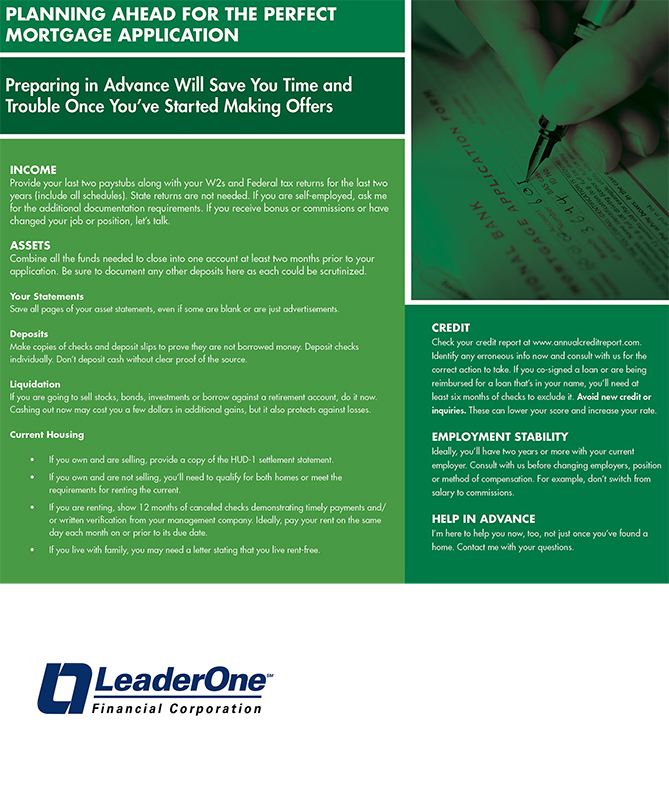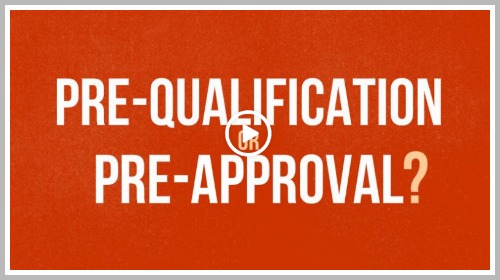Preparing Your Documentation for a Mortgage Application
The first step in the mortgage process is the documentation stage, where your lender reviews your income, assets, employment history, and other compensating factors to determine your ability to repay a mortgage loan.
This is also an opportunity for you to examine the overall financial impact that a new mortgage will have on your total monthly budget, so that you can choose a loan amount and mortgage program that you are most comfortable with.
Our goal is to obtain a speedy approval. The more thorough you are in preparing your paperwork, the faster we can move together on getting your loan approved and funded.
Income / Assets:
- W2's - from the last two years
- 1040 federal tax returns - from the last two years
- Two recent pay stubs
- Two recent bank statements - all pages
- Self-Employed: K1 / 1099 / Profit and Loss YTD
Housing:
- Current and previous addresses for the previous 2 years
- Leasing: Name and phone number of landlord(s)
- Investor: Copy of lease agreements on rental properties
Other:
- Copy of your driver’s license or state-issued ID for all borrowers
There may also be required documents if you have had a short sale, foreclosure, bankruptcy, or other circumstance(s) that may require financial obligations.
You can download the flyer on the right of this page for a complete checklist of all documentation required for a mortgage approval.
Questions About Required Documents
Speak with Allen Price about your situation. We may have to provide underwriting with a valid extension document from the IRS or a letter of explanation describing why you haven’t filed. The rules on this change often, depending on the type of loan program for which you are applying.
All funds used for your down payment and closing costs must be verified.
This will be another scenario that you'll have to speak with your lender about, which is why underwriters ask for all bank statements prior to issuing a fully underwritten approval.
In recent years, mortgage guidelines have been tightened. Documentation requirements have been expanded and followed more closely. A pre-approval gets you through the process and uncovers potential pitfalls long before you become obligated by a contract to purchase.
Certain loan programs, such as renovation, VA, USDA, or FHA, also have specific guidelines about the types of eligible properties.
You'll be certain about the price range that's best for you. You'll know how much cash you'll need in order to close, and you'll know your maximum monthly payment. Understanding your limits will help you negotiate with confidence. Plus, since sellers like a sure thing, you'll have an advantage over buyers who may not have been through the process.
Possibly through a verification of rent form. You may also be able to show 12 months of bank statements with uniform cash withdraws coming on the same day each month to verify.

 Click To Download
Click To Download
